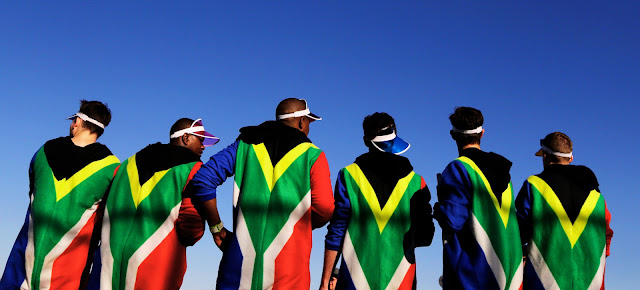South Africa's population is made up of numerous ethnic groups, each with its own distinct culture and traditions. The majority of the population is Black African (80.7%), with White (7.9%), Colored (8.8%), and Indian (2.6%).
The following is a breakdown of South Africa's population by ethnic group:
Black African: 80.7%
- Zulu: 12 million - 23% of the population.
- Xhosa: 8 million - 15% of the population.
- Sotho: 6 million - 10% of the population.
- Tswana: 4 million - 7% of the population.
- Venda: 1.2 million - 2% of the population.
- Tsonga: 2 million - 2% of the population.
- Ndebele: 2 million - 2% of the population.
- White: 5 million - 8% of the population.
- Afrikaners: 3.5 million - 6% of the population.
- Coloured: 5 million - 8% of the population.
- Indian: 2 million - 2.5% of the population.
Zulu: The Zulus are South Africa's largest ethnic group, accounting for a sizable proportion of the population. The estimated population of Zulus in 2021 will be around 12 million.
Xhosa: The Xhosa are South Africa's second-largest ethnic group. They are mostly concentrated in the province of Eastern Cape. The estimated population of Xhosa people in 2021 was around 8 million.
Afrikaners: Afrikaners are the descendants of colonial-era Dutch, German, and French settlers in South Africa. Afrikaners were estimated to number around 3.5 million in 2021.
Sotho: The Sotho people are divided into three subgroups: Southern Sotho, Northern Sotho, and Tswana. They are mostly concentrated in the provinces of Free State, Gauteng, and North West. Sotho people were estimated to number around 6 million in 2021.
Tswana: Tswana people live primarily in the North West province, as well as parts of the Free State and Gauteng. Tswana people were estimated to number around 4 million in 2021.
Venda: The Venda are mostly found in the Limpopo province. Venda's population was estimated to be around 1.2 million in 2021.
Tsonga: The Tsonga are primarily found in the provinces of Limpopo and Mpumalanga. Tsonga people were estimated to number around 2 million in 2021.
Ndebele: The Ndebele people are divided into two groups: Northern Ndebele and Southern Ndebele. They are in the provinces of Gauteng, Mpumalanga, and Limpopo. The estimated population of Ndebele people in 2021 was around 2 million.
The South African government has a non-racialism policy, which means that all citizens are treated equally regardless of race or ethnicity. However, apartheid's legacy continues to have a significant impact on South African society, and racial tensions persist.
Despite these obstacles, South Africans are resilient people dedicated to creating a more just and equitable society. They are collaborating to overcome the past's divisions and envision a future in which all South Africans can live in peace and harmony.
Here are some of the key ethical values that many South Africans share:
- Ubuntu: This is a Nguni word that translates to "I am because of you." It is a philosophy that focuses on the value of community and interdependence.
- Human dignity: South Africans believe everyone is born with dignity and worth. This conviction is codified in the South African Constitution.
- Equality: South Africans believe that everyone is equal before the law and has the same rights and opportunities.
South Africans are committed to working together to heal past wounds and build a more just and equitable society.
These ethical values are critical for the development of a strong and prosperous South Africa. They lay the groundwork for a more just and equitable society where all South Africans can live in harmony and peace.

